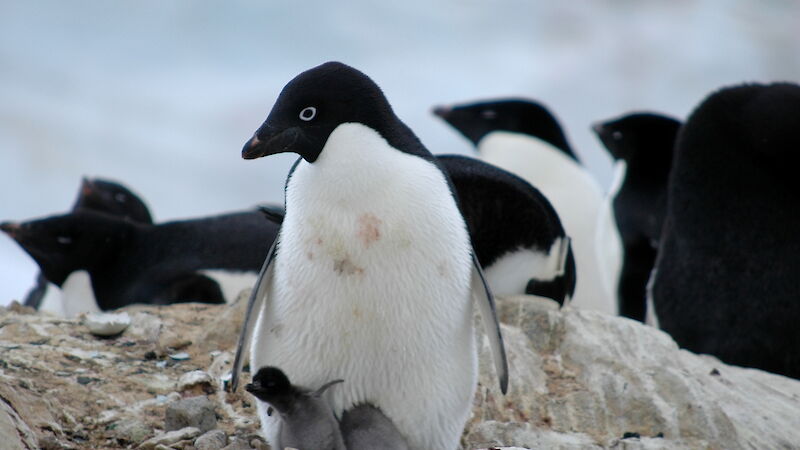Scientists will excavate ancient Adélie penguin colony remains at sites near Davis station this Antarctic season, to learn more about the birds’ history of occupation and their diets.
The research could also reveal more about the climatic conditions in the region during the penguins’ occupation.
Seabird ecologist Dr Barbara Wienecke and PhD student Jane Younger aim to excavate at least 20 sites in the Vestfold Hills and Windmill Islands. They’ll be looking for ‘ornithogenic’ soils — soils resulting from bird activity — comprised of guano, prey remains, eggs, bones and feathers.
‘We’re looking mainly for bones, which can be easily carbon dated to determine how long ago a colony existed on the site,’ Dr Wienecke says.
‘Previous studies in the Ross Sea region of Antarctica have found Adélie penguin bones dating back 45 000 years.
‘If we also find egg shells, we’ll know the area was a breeding site, while the presence of a lot of feathers will indicate a site used for moulting.’
When a suitable site is found the pair will set up pits of between 0.5 and 1m2 and excavate in 5 cm levels until they reach bedrock or the bottom of the ornithogenic component of the soil. They’ll remove and document all the hard parts and then sieve the remaining soil for fish bones, squid beaks and other prey remains.
Previous palaeodiet studies of abandoned penguin colonies have identified fluctuations in prey abundance and diversity that correlate with changes in climate.
‘If we find evidence of prey shifting it’s likely to be related to significant changes in the environment; for example, glaciation of colony areas that forced the penguins to move somewhere else to breed and possibly feed,’ Dr Wienecke says.
‘If we find anything like that, it will be a matter of examining what is known from palaeoclimate records, to see if we can reconstruct the local history.’
Carbon dating of bones will also help to identify any gaps in a site’s occupation history that might correlate with these climate records.
Wendy Pyper
Corporate Communications, Australian Antarctic Division

